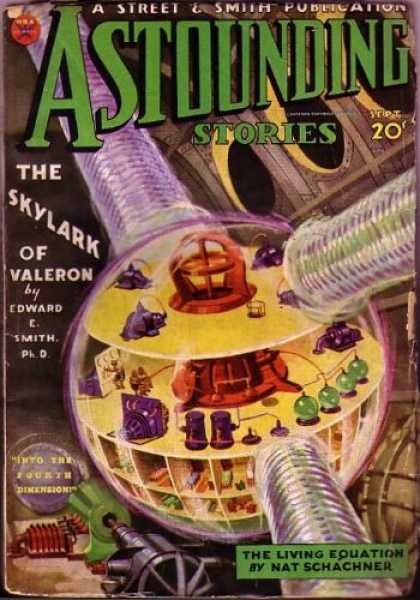|
LITR 4632: Literature of the Future |
Final Exam Essays 2013 Sample answers
for Essay 2:
|
 |
Tina Le
Losing Ourselves in the Future
In my midterm paper I explored the theme of technology
helping the characters find their true identities and how technology worked for
them in a beneficial way. However in the second half of the semester I noticed
that the stories we discussed in class seemed to take away what is important to
the characters’ individual identities, forcing them to take on new personas. As
the course comes to an end, I realize that we as individuals decide what our
future holds, even when it seems out of our control.
In
Drapes and Folds the two characters Pearl and Diana live in NewSociety where
conformity is being forced upon its citizens. The head of NewSociety are the
Powers and all decisions and laws are made by them. In this story the “Powers
saw sumptuous clothing and fabric as a part of the ‘anarchic individualism’ that
had poisoned the last half of the twentieth century’” and made all fabrics
against the law. Pearl the narrator is a lover of all fabrics and believes that
they are the only thing left in the world that makes her an individual. Her
friend Diana does not understand her passion for materials and tells Pearl, “You
are who you are, who else could you be?” In this society the Powers demand that
the women (men are not mentioned in the text) wear Bracies, “hosed-on
sludge-colored bodysuits favored by the Powers employed hydraulics to eliminate
individual morphs. All bodies were reduced to one bland, universal form.” We
learn in the story that the society had been damaged by the breast cancer
epidemic in the year 2022. Pearl’s rebellion against the bracies is rooted by
the fact that the women are no longer women of the past, and her fabrics are
what can make women feel beautiful and special again, but the Powers believe
that the bracies are the solution. To help them forget about what had taken away
their image.
The Powers in this story also invade their
citizens in their sleep and brainwash or program them to think differently,
making the citizens favor the world they live in. Diana tells Pearl, “The other
night, while I was sleeping they gave me a sweep.” She then goes on to explain
that “preliminary monitoring had shown an extreme hardening that the inside of
my head was as dry and hard as a rock.” This explains why Diana did not
understand Pearl’s passion for materials at the beginning of the story. Before
the Powers invaded her head, Diana opposed the laws the Powers had set out and
“held secret meetings and organized the Food Cabal” because she was outraged
that the citizens would give up food and taste without a fight. Later we see
Diana repeating lines that the Powers have programmed her to say. Pearl does not
want to live in a world of conformity and annihilation and does everything she
can to protect her individuality, and she finds a way to keep her fabrics.
However, in this NewSociety how long will she be able to rebel against the
Powers before they sweep her too?
Loss of identity is not always caused by
technology and government powers, but by disease and illness. In Octavia
Butler’s Speech Sounds we are set in
a world that is trying its best to recover from an epidemic that has impaired
people’s intelligence and language. Rye the protagonist has lost her ability to
read and write and can only comprehend spoken language. Before the epidemic
broke out Rye was a history professor at UCLA and a freelance writer, and
because of the disease she has lost her identity, the person she once was, the
person she will never be again. Later on in the story Rye thinks about the
children born into the chaotic world saying, “they ran through the streets
chasing one another and hooting like chimpanzees. They had no future. They were
now all they would ever be.” The disease had separated the world into two
groups, those who could read and write but did not understand spoken language,
and those who did understand speech but could not read or write. Because of this
body gestures and animalistic noises were the only form of communication. The
children would grow up without a sense of identity and purpose; they would be
living like animals in the wild. In the end of the story Rye takes in two
children who can speak to her and she begins to think “what if children of three
or fewer years were safe and able to learn language? What if all they needed
were teachers?” Rye wants to help change the future and could teach the
children, but how much of her impaired intelligence could be used? If she found
someone to teach them how to write, there is the possibility that the disease
can come back greater than before.
When we are no longer in control of our
future and our identity is taken away from us, there is only so much we can do.
We can try and manage to hold on to who we are, remember where we came from and
cherish what we have, but when higher powers and natural causes eradicate what
we have left all we can do is to conform and adapt to our surroundings. It is
scary to imagine these two stories becoming possible futures, so as we are here
in the now we should make every day worth living before there is nothing left to
look forward to.
